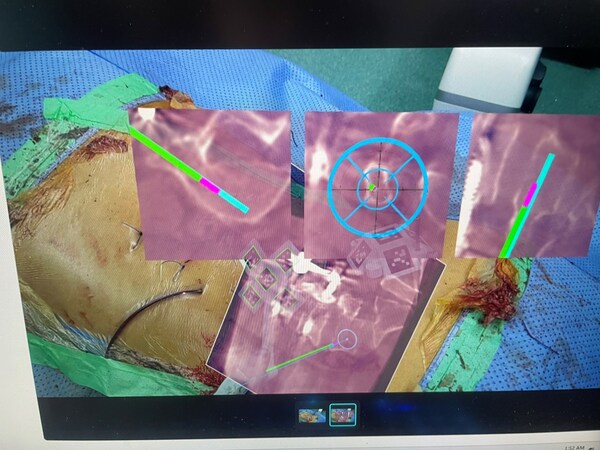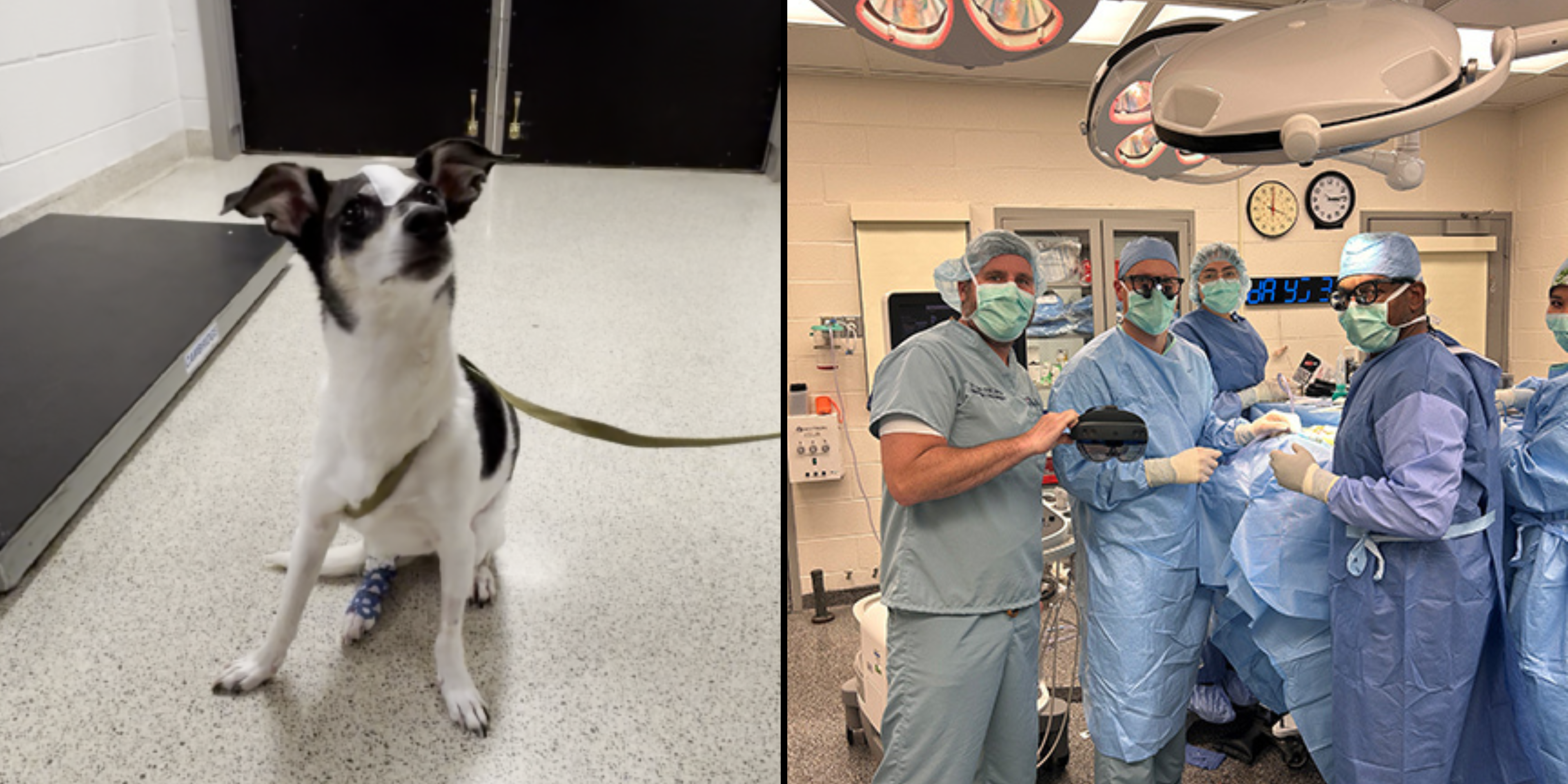World's first pediatric deformity case using immersive augmented reality surgical navigation

Dr. Scott Luhmann, an orthopedic surgeon at Washington University School of Medicine in St. Louis, performed the world's first pediatric deformity case using the VisAR immersive augmented reality surgical navigation. Ten pedicle screws were successfully placed during the surgery, which was conducted at St. Louis Children's Hospital on the Washington University Medical Campus.
The immersive nature of VisAR enables greater accuracy during surgery with a shorter learning curve. Typically, surgeons need to look back and forth from a screen to the patient in order to use navigation software. With VisAR, 3D image datasets are superimposed on the patient's body, enabling the surgeon to look directly at the patient throughout the surgery using an augmented reality headset. The entire OR footprint is a small AR headset on the doctor's head, reducing clutter in operating rooms.
Dr. Wendell Gibby, CEO of Novarad who has used VisAR in many surgical environments, commented that "it is unique among navigation systems in that the image and patient registration are nearly instantaneous. For example, in a typical navigation system, if you deflect the spine, there is a lag before the images are re-registered. With VisAR, this lag is only 200 msec using the patented image visible optical trackers. This live, dynamic adjustment of the images allows the surgeon to proceed faster and with more confidence."
VisAR provides surgeons with a real-time, three-dimensional visualization of the surgical site, allowing for better depth perception and spatial awareness. It allows the surgeon to integrate preoperative imaging data (such as CT scans) directly into the field of view. This produces a personalized, patient-specific surgical plan, optimizing the approach and minimizing damage to surrounding healthy tissues.
VisAR is FDA cleared for stereotactic spinal surgery and is currently under review for stereotactic cranial surgery in the USA. Regulatory applications are pending in Europe, Philippines, Vietnam and other countries. Visar's predecessor Opensight was the first AR navigation system cleared for pre-operative use over 5 years ago and has similar CE mark status. VisAR has been used in eight countries for a wide variety of applications, including spinal implant guidance, plastic surgery, orthopedic trauma and oncology, and interventional radiology. Several clinical trials are currently underway for cranial surgery as well.
VisAR is available in the United States, Mexico, and Indonesia, with other countries expected to approve the technology in upcoming months. Visit novarad.net/visar for more information or to schedule a demonstration.


